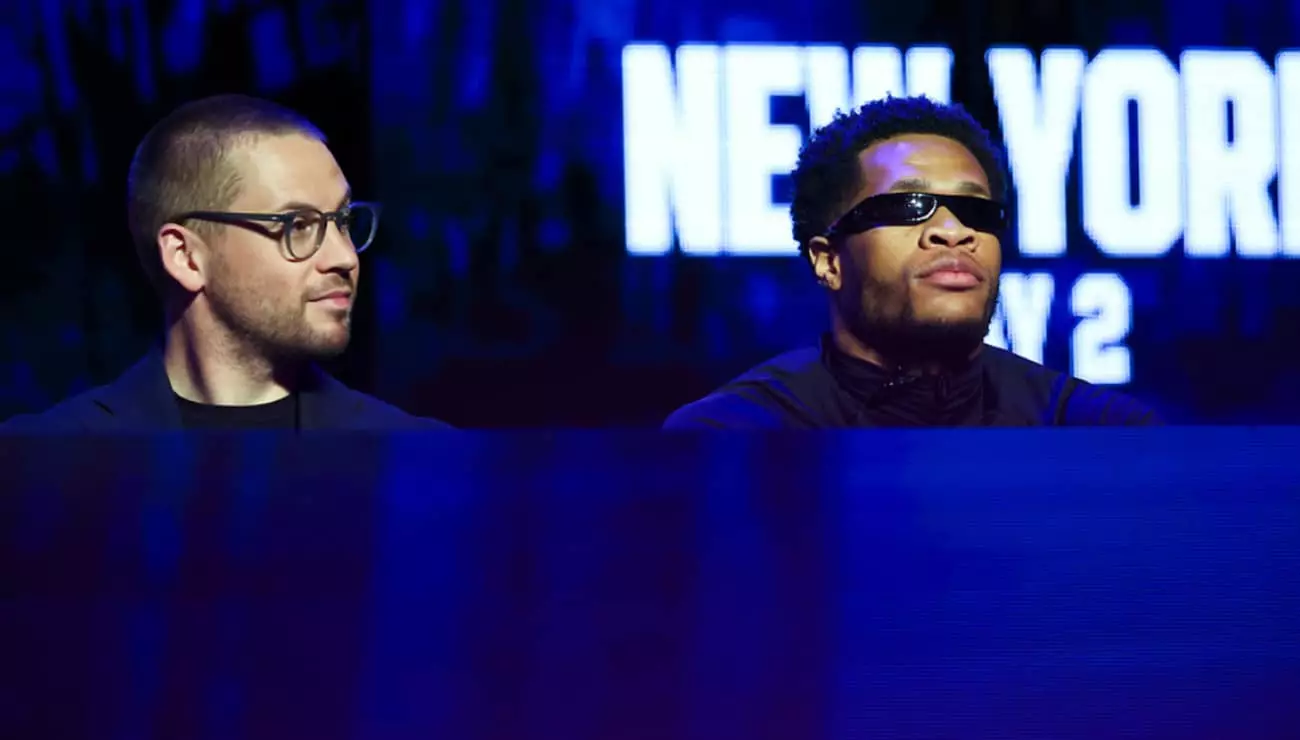As the boxing world pivots its attention to the upcoming clash between Devin Haney and Jose Ramirez, the comments from Haney’s promoter, Oscar De La Hoya, carry significant weight. De La Hoya’s judgment paints a disturbing picture of Haney—a once-promising champion reduced to a “broken shell” of his former self, lacking confidence and purpose. This commentary isn’t merely idle chatter; it’s a reflection of the tumultuous career trajectory that Haney has found himself navigating. Following his loss to Ryan Garcia, both his performance and mental fortitude have come under intense scrutiny, leading fans and analysts to question whether Haney can reclaim his former glory.
The Aftermath of Defeat
There’s an undeniable correlation between a fighter’s mental state and their performance in the ring. Haney (31-0, 15 KOs) faced a staggering defeat at the hands of Garcia, one that rattled his core. The aftermath of that fight saw him stepping away from the ring for an entire year—a striking departure from a fighter whose ambition had once diven him to remain active and continuously seek challenges. This break from competition raises questions not only about Haney’s confidence but also about his commitment to the sport. A hallmark of champions is their ability to rebound; Haney’s year-long hiatus drawn suspicion about his resilience and drive, suggesting that he may not have fully processed the effects of his earlier defeat.
Ramirez: The Countering Force
Enter Jose Ramirez (29-2, 18 KOs), the former WBC and WBO 140-lb champion, whose experience and unrelenting drive will be on full display in their bout on Friday. De La Hoya’s prediction that Ramirez will exploit Haney’s vulnerabilities is rooted in a sound analysis: Ramirez is not just focused on a win; he is on a mission to reaffirm his standing in the boxing realm. Like a seasoned chess player, he will look for the slightest opening or crack in Haney’s mental armor and seize the advantage.
A victory for Ramirez has implications beyond personal achievement; it aligns him for the potential rematch against Garcia, further stoking the competitive landscape of this weight class. With both fighters aware of what’s at stake, the bout promises to be a thrilling encounter, yet perhaps one more layered than simply a fight between contenders. It could be the fulcrum that decides Haney’s career trajectory—either a resurgence or a slide into mediocrity.
The Stakes of Marketing and Performance
The promotional landscape surrounding this fight adds further complexity. Haney’s reinstatement of his unbeaten record by the New York Commission feels like a hollow victory, especially against the backdrop of his perceived faltering. His positioning as the co-main event to the Ryan Garcia-Rolando “Rolly” Romero matchup could exacerbate his insecurities, emphasizing a power imbalance amongst fighters who were once peers. For Haney, being in the spotlight may no longer inspire confidence; the overshadowing presence of his former conqueror could reverberate through his psychology.
Oscar De La Hoya’s astute understanding of boxing’s marketing dynamics shows that, whether or not he voices his opinions from a place of tension with Haney, there’s merit in the narrative. The fight isn’t just a physical battle; it’s a stage upon which psychological warfare plays a significant role, as fans witness the dismantling or resurrection of a once-celebrated talent.
Family Dynamics and Professional Growth
Another dimension to this unfolding drama lies within Haney’s personal circle, notably his father’s role as his manager. As De La Hoya pointedly remarks, fueling Haney’s grievances may have adverse effects not only on the fighter’s public image but also on his performance. The relationship between an athlete and their family can be both supportive and intimidating; Haney’s situation reflects a common tension where personal ties can complicate professional decisions. It raises the question: can emotional dependency foster an environment conducive to competitive success, or does it risk ensnaring a fighter in a cycle of dependency that diminishes performance?
In this high-stakes contest, it’s evident that both fighters will bring not only their physicality but also their respective psychological landscapes into the ring. The differences in mental resilience and clarity could be the defining factors that dictate who leaves this encounter victorious and who may have to grapple with the exigencies of another setback.

